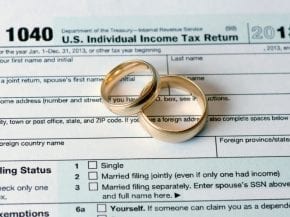- browse by category
- Audit Assistance
- Business and Taxes
- Celebrities in Tax Debt
- Cryptocurrency Taxes
- Economic News
- Foreign Banking
- Innocent Spouse
- IRS debt settlement
- IRS Headlines
- IRS Wage Garnishment
- Marriage & Divorce
- Payroll Tax
- Retirement
- Revenue Officers
- State Tax Headlines
- Stop IRS Debt
- Success Stories
- Tax and Politics
- Tax Attorney
- Tax Codes
- Tax Debt Help
- Tax Evasion
- Tax Levy
- Tax Lien
- Tax Payment Plans
- Tax Return Filing
- Tax Tips

The IRS can be a big hassle for certain people. After working for a year and paying taxes, you can find an IRS auditor knocking on your door, demanding records and asking questions. In short, the IRS can make life very inconvenient. So you need to know some red flags for IRS audits.
Factors That Determine the Special One Percent
So when filing your taxes, make sure to know what the IRS looks for when they decide who to audit. Only about one percent of the population gets audited, but the number of audited taxpayers has increased as the government aims for more revenue.
Common Red Flags for IRS Audits
There’s an old saying: More money, more problems. And that’s the case with the IRS. The more money you make, the more likely it is that you’ll be audited. Millionaires have a roughly one in eight chance of getting audited. If you make more than $200,000, the audit rate is about four percent. Make less than $200,000 and the audit rate is one percent.
But not reporting all of your income is like asking for an IRS audit. They get the same W-2 and 1099 forms that arrive in your mailbox, so don’t take a chance that their sophisticated computer systems will randomly miss your inconsistent information.
You may not be an international bank, but if you’re making currency transactions then your chances of an audit increase. Treasury Department officials reported that tip-offs from banks regarding foreign accounts and currency transactions often yield people with unreported income.
Paying by Cash? Big Mistake.
Paying by cash is also another tip-off for the IRS. If you’re making cash payments of more than $10,000 to car dealerships, banks, or casinos, they’ll relay that info to the IRS. If you try and be sneaky by depositing $9,000 every couple days to avoid the $10,000 mark, you won’t be out of the woods. Financial institutions often send reports of suspicious financial activity to the authorities.
If you’re making those cash payments, you may be running a cash business, which are tantalizing prey for IRS auditors. This type of business is more likely to under report all of its revenue, and the IRS has special procedures in place to pry information out of the people who run them.
Avoiding Red Flags for IRS Audits
While it’s a good idea to know what the IRS looks for when it decides who to audit, it’s never a good idea to skip out on paying your taxes. Back taxes are subject to penalties and interest, which can make an unmanageable amount even worse.
Not paying back taxes to the IRS is also a red flag. If you owe back taxes, make sure to work with a tax professional to increase your chances of avoiding a wage garnishment or bank levy.
Leave Comments

Top Tax
secrets revealed
Sign up for our newsletter and be the first to find out when exciting IRS news happens. Yes, exciting. We're really into taxes.


